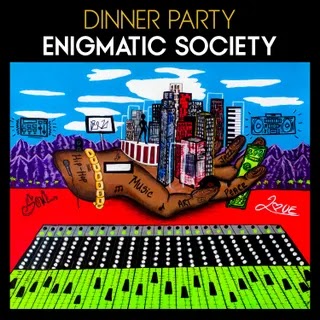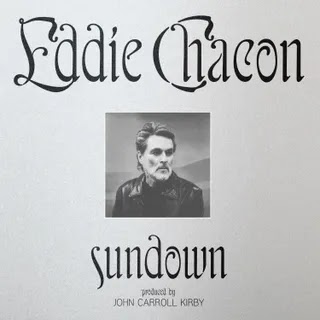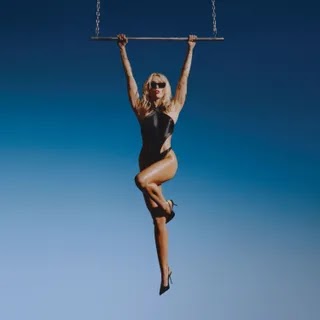The news is hardly any less grim since 2019’s Civilisation I, but the UK pop trio’s second entry considers the emotional toll of disaster with ingenuity, wit, and a warm, bright sound.
Though they came up in the same scene that produced A.G. Cook, GFOTY, and Hannah Diamond, Kero Kero Bonito’s hyperpop always had a more personal touch. On 2013’s Intro Bonito and 2016’s Bonito Generation, the London trio synthesised a nostalgic and unruly palette of influences ranging from J-pop to post-punk, creating a modern sound that paid tribute to the trio’s hometowns—the London suburbs for producers Gus Lobban and Jamie Bulled, and Otaru, Japan, for vocalist Sarah Midori Perry. This implicit fondness for cycles of reference—for the way that culture compounds over time, accruing layers of influence—meant that KKB never affected the same tongue-in-cheek tone as their peers: For Lobban, Bulled, and Perry, music is an earnest way to celebrate and interrogate the idiosyncrasies of history.
Since Bonito Generation, KKB have strayed further from hyperpop conventions. In 2018, Time ‘n’ Place took its cues from suburban shoegaze, the indie rock of Phil Elverum, and pop-punk, a musical Venn diagram connected by noise and vivid vignettes. Concurrently, the band’s writing became more precise, less reliant on the deadpan catchphrases that structured early favorites like “Flamingo.” As hyperpop has become more interested in replicating the memeish terror of the internet—see the abrasive non-sequiturs of 100 gecs—KKB traveled in the other direction, evoking the pathos and bathos of everyday life. Time ‘n’ Place’s “Visiting Hours,” a verité-style account of Lobban’s trip to see his father in the hospital, is typical KKB 2.0: poignant, emotionally aware, and anxious about modern life.
If Time ‘n’ Place was colored by personal loss, Civilisation I, the band’s 2019 EP, shifted its gaze to the collective loss engendered by colonialism, capitalism, and global heating. Though only three tracks long, it hit hard, evoking nightmarish visions of perpetual war and wildfire smoke. On centerpiece “When the Fires Come,” Perry sang about global decline with prophetic economy: “Everybody takes their time making work to do, do, do, do/But no one will be left here to remember us/When the fires come.”
Civilisation II, a second three-song EP, arrives over a year later. In the intervening months, grotesque catastrophe has only become more commonplace: Violent wildfires dominated headlines at the beginning of 2020, before the pandemic—and the ways in which it exposed the seemingly bottomless depths of corporate greed and governmental incompetence—took over. The conditions of its creation would seem to inspire another EP of soothsaying, but Civilisation II takes a different tack, focusing on the emotional toll of disaster with ingenuity, wit, and a warm, bright sound scrubbed of Time ‘n’ Place’s grit.
KKB describe the songs on Civilisation II as representing past, present, and future, respectively, a concept that feels unnecessary when the music is as intellectually salient and catchy as ever. Opening with a racing hi-hat rhythm and amiable analog synth, lead single and opener “The Princess and the Clock” feels warm in a way that KKB singles haven’t always; straightforward verses give way to a swelling chorus that cuts up and resamples Perry’s voice into a new vocal melody, à la Porter Robinson. The lyrics recount a fable about a princess trapped in a tower, “painting pictures of the land that made her” as a form of remembrance. In the context of Civilisation I, the image of the solitary princess suggests a message about the creation—and, by extension, the degradation—of history, bringing to mind the ways in which Indiginous peoples the world over have seen colonial and capitalist forces degrade and destroy their cultural histories, and, by extension, ancient resources on caring for and protecting the Earth.
On “present” track “21/04/20,” the spectre of disaster is felt without the need to spell it out. Rather than attempt to capture the stress or anxiety of pandemic isolation, Perry writes about its mundanity. The lyrics are ambling and diaristic, like a sequel to “Visiting Hours”; were you not paying attention, you might not realize it’s a song about lockdown at all. But around the corners of the frame, things are upset in a casual, resigned sort of way:
As I sit down to eat, I hear a song riding the breeze“Happy birthday to Eloise”Their mum and dad both let out a cheerThey’re gonna throw a party another yearAnd I should take a walk for a bitAs I head up the road, a private ambulance zooms off into the distanceIn silence
Like all of Civilisation II, “21/04/20” was produced entirely with vintage hardware, a choice that scans as both aesthetic and conceptual. Scientists have warned of more pandemics arising with greater frequency in the coming years, and aside from its title, “21/04/20” is written and produced without distinct markers of time and place. KKB’s smart, subtly meta approach allows the song’s power to stem not from what it is, but what it isn’t: If this present is to be our new future, why write a polemic or a tragedy?
On “Well Rested,” Civilisation II’s swollen final track, KKB blow up the mythmaking to dizzying proportions. Over a beat that strikes somewhere between vaporwave and acid house, Perry delivers a spoken-word sermon on humanity’s stubborn persistence. “False prophets proclaim that the end is nigh, and that humanity is not worth existence,” she yells. “This is a trap laid to ensnare the living.” The language is uncanny and cold: She sounds like a cult leader or a con artist, perhaps not even convinced of her own words. That feels entirely the point: “Well Rested,” like the rest of Civilisation II, meditates not on human decline as much as the fables and myths we create in order to adjust to it. KKB are as inquiring and self-aware as ever—only now, their eyes are trained on the future.
















0 comments:
Post a Comment